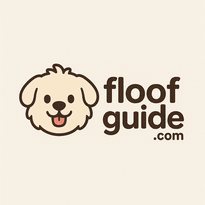Does your dog spend a lot of time gnawing on his paws? Nail chewing in dogs is more common than you think. It might seem harmless, but excessive chewing can lead to pain, infection, and other issues. Let's explore why your dog might be chewing his nails and, more importantly, how to stop it.
Why is My Dog Chewing His Nails?
Before you can tackle the problem, you need to understand the possible causes. Here are some common reasons why dogs chew their nails:
- Allergies: Food or environmental allergies can cause itchy paws, prompting your dog to chew for relief. This is one of the most common underlying reasons.
- Anxiety or Boredom: Just like humans, dogs can develop nervous habits. Chewing can be a way to cope with anxiety, stress, or simply boredom.
- Dry Skin: Dry skin can make your dog's paws itchy and uncomfortable, leading to chewing.
- Pain or Injury: A cut, splinter, broken nail, or even arthritis can cause pain, which your dog may try to alleviate by chewing.
- Parasites: Mites can cause intense itching and subsequent chewing. Your vet will need to identify the type of mites present and prescribed appropriate medication.
- Nutritional Deficiencies: In rare cases, a lack of certain nutrients might contribute to nail chewing.
- Habit: Sometimes, the chewing starts for one of the reasons above, but becomes a learned habit even after the initial problem is resolved.
How to Stop the Chewing
Now for the important part: how to break this habit! Here's a step-by-step approach:
1. Rule Out Medical Causes
The first and most crucial step is to consult your veterinarian. They can diagnose any underlying medical conditions, such as allergies, infections, or arthritis, that might be causing the chewing. Follow their treatment recommendations carefully.
2. Address Anxiety and Boredom
If your vet rules out medical issues, consider anxiety or boredom as potential culprits. Try these strategies:
- Increase Exercise: A tired dog is a good dog! Make sure your dog gets plenty of physical activity each day. Long walks, runs, or play sessions can help burn off excess energy and reduce anxiety.
- Mental Stimulation: Keep your dog mentally stimulated with puzzle toys, training sessions, and interactive games. A bored mind is a chewing mind!
- Create a Safe Space: Ensure your dog has a comfortable and secure place to retreat to when they feel anxious. A crate or a designated bed can provide a sense of security.
- Consult a Behaviorist: If anxiety seems severe, consider consulting a certified dog behaviorist. They can help you identify the specific triggers and develop a behavior modification plan.
3. Protect the Paws
Sometimes, you need a more immediate solution to stop the chewing. Consider these options:
- Bitter Sprays: Apply a dog-safe bitter spray to your dog's paws. The unpleasant taste will deter them from chewing. Reapply as directed.
- Paw Protection: Consider using dog boots, especially when going outside. This will protect the paws from irritants and prevent chewing.
4. Improve Paw Hygiene
Good paw hygiene can help prevent infections and reduce the urge to chew:
- Regular Cleaning: Wipe your dog's paws with a damp cloth after walks to remove dirt and allergens.
- Proper Nail Trimming: Keep your dog's nails trimmed short. Long nails are more prone to breaking and causing discomfort.
- Moisturize: If your dog has dry skin, use a dog-safe paw balm to keep their paws moisturized.
5. Redirect the Behavior
When you see your dog chewing, gently redirect their attention to a more appropriate activity. Offer a chew toy or engage them in a game.
When to See a Vet
While many cases of nail chewing can be managed at home, it's important to seek veterinary attention if:
- The chewing is excessive or causes self-harm.
- You notice signs of infection, such as redness, swelling, or discharge.
- Your dog seems to be in pain.
- Home remedies are not effective.
By understanding the reasons behind your dog's nail-chewing habit and implementing these strategies, you can help break the cycle and keep your furry friend happy and healthy. Remember to be patient and consistent, and don't hesitate to seek professional help when needed.

